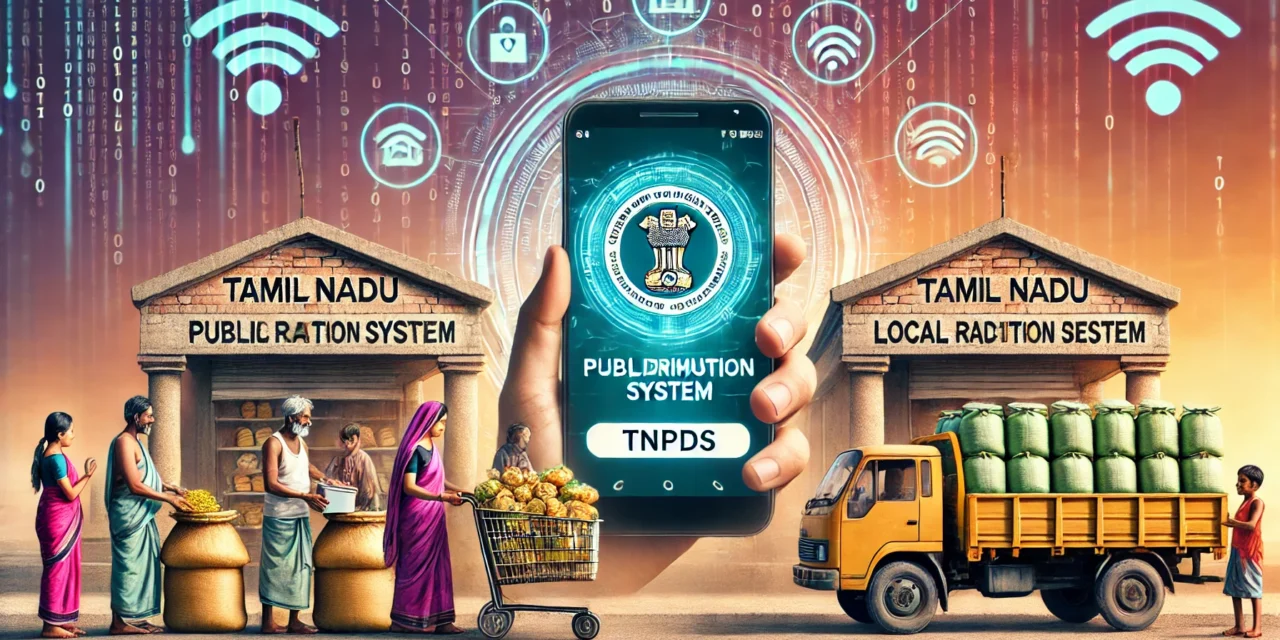The Tamil Nadu Public Distribution System (TNPDS) represents a significant advancement in the way food security and essential commodities are provided to the residents of Tamil Nadu. This system aims to ensure that essential commodities are accessible to all citizens, particularly the economically disadvantaged, by leveraging technology to streamline the distribution process and reduce inefficiencies.
The Evolution of TNPDS
The Public Distribution System (PDS) in Tamil Nadu has undergone various transformations to better serve its population. Historically, the PDS operated through a network of fair price shops that provided subsidized food grains and other essentials to ration cardholders. While this system was effective in many ways, it also faced challenges such as corruption, delays, and inefficiencies in the distribution process.
In response to these challenges, the Tamil Nadu government introduced the TNPDS, or Tamil Nadu Public Distribution System, which incorporated digital technology to modernize the traditional PDS. The introduction of smart ration cards has been a cornerstone of this transformation, aiming to curb fraudulent practices, reduce administrative costs, and enhance the overall efficiency of the distribution system.
The TNPDS Smart Ration Card
The TNPDS Smart Ration Card is a digital version of the traditional ration card. This card, which can be accessed via smartphones, eliminates the need for physical cards, thus reducing the risk of loss or damage and making it easier for citizens to manage their entitlements.
Objectives of the TNPDS Smart Ration Card:
- Fraud Prevention: By incorporating biometric data and other secure authentication methods, the smart ration card system helps prevent fraudulent practices that were prevalent with physical cards.
- Cost Efficiency: The transition to digital cards reduces the costs associated with printing and distributing physical cards.
- Time Efficiency: Digital cards streamline the process of distribution, allowing citizens to access their entitlements more quickly and easily.
- Accessibility: The smart card system is designed to be user-friendly, ensuring that even those with limited technological skills can access their benefits.
Types of TNPDS Ration Cards
The TNPDS system offers four main types of ration cards, each catering to different segments of the population:
- Green Cards: These provide citizens with rice and other commodities from fair price shops.
- White Cards: These offer additional sugar (3 kg) to the cardholders.
- Khaki Cards: Issued to police personnel.
- No Commodity Cards: For those who do not require any commodities from ration shops but need a ration card for identification purposes.
Eligibility and Application Process
To be eligible for a TNPDS Smart Ration Card, applicants must be permanent residents of Tamil Nadu and meet certain income criteria. The application process is straightforward and can be completed online or offline:
- Online Application:
- Visit the official TNPDS website.
- Fill out the application form with the necessary details.
- Upload required documents such as Aadhar card, PAN card, family photograph, bank passbook, caste certificate, income certificate, and electricity bill.
- Submit the application and track its status online.
- Offline Application:
- Visit the nearest ration depot.
- Fill out the TNPDS Smart Card Form and submit it along with the required documents.
- The application will be processed, and the card will be either delivered to the applicant’s home or can be collected from the depot.
Checking Application Status and Making Corrections
Once the application is submitted, applicants can check the status of their TNPDS Smart Ration Card online by visiting the TNPDS website and entering their reference number. Additionally, if any information needs to be corrected or updated, applicants can log in to their account and make the necessary changes.
Common Corrections Include:
- Adding or removing family members.
- Changing the address.
- Updating personal details such as name or contact information.
Impact and Benefits of TNPDS
The implementation of the TNPDS system has had a profound impact on the residents of Tamil Nadu. By making essential commodities more accessible and reducing the administrative burden on the government, TNPDS has improved the overall welfare of the population. The system ensures that food security is maintained and that even the most vulnerable citizens have access to the resources they need.
Moreover, the introduction of digital ration cards has paved the way for further innovations in public distribution systems across India. Other states are looking to Tamil Nadu as a model for how to effectively integrate technology into social welfare programs.
Real-life Stories
Story 1: Maria’s Experience with TNPDS
Maria, a single mother of two from Chennai, had always struggled to get her monthly rations. Long queues and bureaucratic delays meant that she often had to take time off work to collect her family’s essentials. Since the introduction of the TNPDS Smart Ration Card, Maria’s experience has drastically improved. Now, she can check her entitlement and the availability of commodities from her phone and visit the ration shop only when her items are ready for collection. This convenience has saved her time and reduced the stress associated with securing her family’s food supply.
Story 2: Rajesh’s Journey from Physical to Digital
Rajesh, a farmer from Coimbatore, was initially skeptical about the digital ration card system. He found the idea of using a smartphone for such an essential service daunting. However, after attending a local workshop organized by the TNPDS officials, he learned how to use the digital system. Today, Rajesh appreciates the ease with which he can access his entitlements and the transparency the system offers. The digital transition has not only made his life easier but has also given him a sense of empowerment and inclusion in the digital age.
Also Read: Carmel Matrimony: A Trusted Coastal Platform for Indians
Conclusion
The TNPDS system is a testament to how technological advancements can be leveraged to improve public welfare programs. By transforming the traditional Public Distribution System into a more efficient, transparent, and user-friendly model, the Tamil Nadu government has set a precedent for other states to follow. The TNPDS Smart Ration Card is more than just a technological innovation; it is a vital tool in the fight against hunger and poverty, ensuring that every citizen has access to the resources they need to lead a healthy and dignified life.










